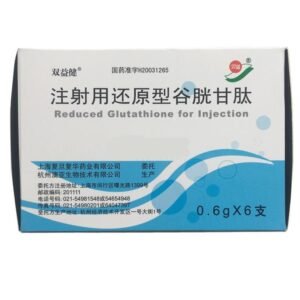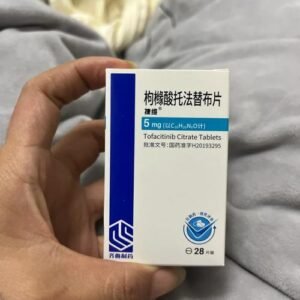KEYTRUDA PEMBROLIZUMAB 派姆单抗
Pembrolizumab is a PD-1 inhibitor, an immunotherapy drug that activates the human immune system to recognize and attack cancer cells. It is widely used to treat a variety of cancers, such as melanoma, non-small cell lung cancer, head and neck squamous cell carcinoma, etc., especially for tumors with high expression of PD-L1 or microsatellite instability (MSI-H).
Mechanism of Action
Pembrolizumab relieves the suppression of the immune system by tumor cells by blocking the binding of PD-1 to PD-L1/PD-L2. PD-1 is an immune checkpoint protein on the surface of T cells. When it binds to PD-L1 on the surface of tumor cells, the anti-tumor activity of T cells is inhibited. By inhibiting this process, pembrolizumab helps T cells re-recognize and eliminate cancer cells.
Indications
Melanoma: For advanced or inoperable melanoma, it can be used alone or in combination with other drugs.
Non-small cell lung cancer (NSCLC): As a first-line treatment, it is suitable for patients with high PD-L1 expression (TPS ≥ 50%) and no EGFR/ALK mutations.
Head and neck squamous cell carcinoma: Suitable for recurrent or metastatic cases, especially those who have progressed after platinum-containing chemotherapy.
Other cancers: Including Hodgkin lymphoma, urothelial carcinoma, colorectal cancer (MSI-H/dMMR type), etc.
Efficacy and safety
Efficacy: Clinical trials have shown that pembrolizumab can significantly prolong patient survival. For example, in the KEYNOTE-024 study, the median survival of patients with advanced NSCLC increased from 14.2 months in the chemotherapy group to 30.0 months.
Safety: Common side effects include fatigue, rash, itching, etc.; severe side effects may involve immune-related adverse reactions (such as pneumonia, colitis, hepatitis), which require timely intervention. About 10%-15% of patients may stop taking the drug due to side effects.
Precautions for use
Pre-treatment evaluation: PD-L1 expression level or MSI status needs to be detected to determine the applicable population.
Dosage and course of treatment: Usually intravenous injection once every 3 weeks, the dose is adjusted according to body weight or fixed regimen.
Adverse reaction management: When immune-related side effects occur, the medication needs to be suspended according to the severity, and treatment such as glucocorticoids should be used.
Contraindications: Patients with active autoimmune diseases and organ transplant recipients should use it with caution.
Research progress and future directions
The indications of pembrolizumab continue to expand, and current research focuses on:
Combination therapy: Combined with chemotherapy, targeted drugs, radiotherapy or other immune drugs (such as CTLA-4 inhibitors) to improve efficacy.
Exploration of new indications: Such as triple-negative breast cancer, gastric cancer, liver cancer, etc.
Biomarker optimization: Explore more accurate predictive markers (such as tumor mutation burden TMB) to screen the beneficiary population.
Summary
Pembrolizumab provides a variety of advanced cancer patients with the opportunity for long-term survival by restarting the immune system’s anti-cancer ability. Its efficacy and safety have been widely verified, but it is necessary to strictly follow the medication specifications and closely monitor adverse reactions. In the future, with the development of combined therapy and precision medicine, its application prospects will be broader.
View more
Share:
Products
Our offers
Health Classification
Let us work together to protect precious health




























